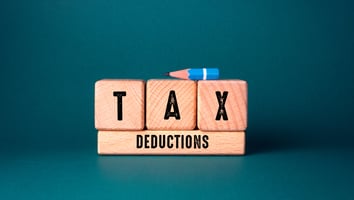Top 5 Tips for Musicians to Stay Organized During Tax Season

For musicians and creatives, tax season can feel like trying to hit the right note on an unfamiliar instrument—complicated and overwhelming. With multiple income streams, gig expenses, and freelance work, staying organized is essential for making tax preparation stress-free. Here are five practical tips to help musicians stay on top of their taxes and finances during tax season.
1. Keep Track of All Income Sources
As a musician, your income might come from various sources, including live gigs, streaming platforms, merchandise sales, and teaching lessons. Keeping track of these income streams is vital for accurate tax preparation.
- Use a simple spreadsheet or apps like QuickBooks to log your earnings regularly.
- Separate your income by category (e.g., performance fees, royalties, or freelance teaching).
- Document payments received from clients or venues, even if they’re small—they add up during tax season!
2. Organize Receipts for Deductible Expenses
Musicians and creatives often incur many expenses related to their craft. These expenses can be deducted from your taxable income if properly documented.
- Save receipts for purchases like instruments, sheet music, recording equipment, or even travel for gigs.
- Don’t forget to track utility costs for a home studio or rehearsal space.
- Use a mobile app or physical folder system to categorize expenses throughout the year, so you’re not scrambling when tax season rolls around.
3. Use Tools to Simplify Bookkeeping
Bookkeeping can be one of the most daunting tasks for musicians, but using the right tools makes it manageable.
- Consider digital tools like Wave, FreshBooks, or HoneyBook tailored for freelancers and small business owners.
- Automate where possible, such as syncing your bank accounts and categorizing transactions in real time.
- Schedule regular “bookkeeping days” to update your records and ensure everything is accurate.
4. Separate Personal and Professional Finances
One of the most common mistakes musicians make is mixing personal and professional finances. Avoid this by creating clear boundaries.
- Open a separate bank account specifically for your music-related income and expenses.
- Use dedicated credit cards for business purchases like gas for tour travel or supplies for performances.
- Keeping these finances separate simplifies bookkeeping and ensures you don’t miss deductible expenses.
5. Partner with a Tax Prep Service That Understands Creatives
Navigating the tax world as a musician or creative professional is a unique challenge. Partnering with a tax preparation service that understands your specific needs can save you time, stress, and even money.
- Look for tax professionals who specialize in working with freelancers, gig workers, and creatives.
- They’ll know how to handle complex income streams and identify deductions specific to musicians, such as gear maintenance, music lessons, and professional memberships.
Why Staying Organized Matters
Staying organized not only ensures a smoother tax season but also helps you keep better track of your income and expenses throughout the year. When you’re not bogged down by disorganized records or last-minute scrambling, you can focus on what really matters—making music and building your creative career.
At JH Associates, we specialize in helping musicians and creatives tackle tax preparation and financial organization with ease. Contact us today to learn how we can simplify your tax season and keep your creative career thriving!


